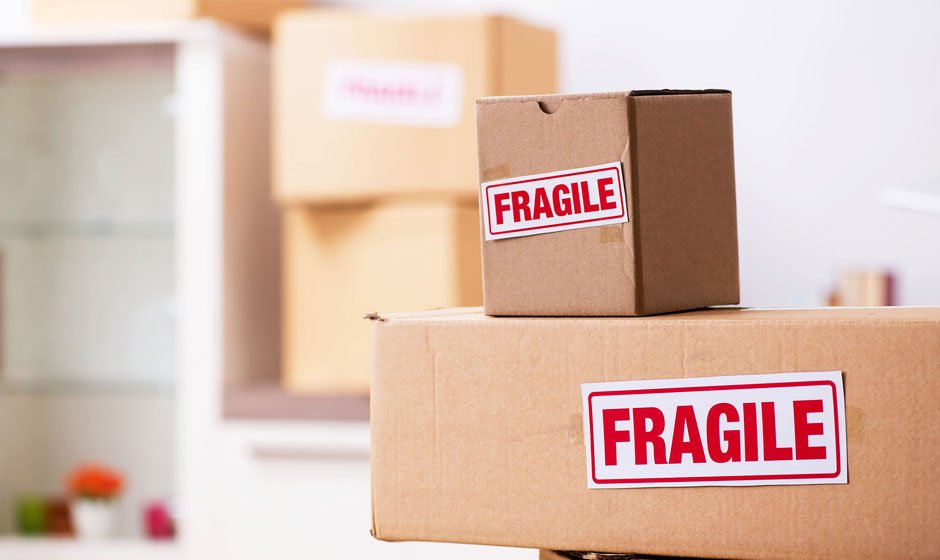Relocating fragile and valuable items over a long distance can be daunting. The risk of damage or loss during transit requires careful planning, proper packing, and the right techniques to ensure your belongings reach their destination safely. Whether you’re transporting heirlooms, electronics, artwork, or glassware, taking extra precautions can save you from unnecessary stress and expense. Here’s how to move your fragile and valuable items safely during a long-distance relocation.
Assess What Needs Special Attention
Start by identifying which items require extra care. Fragile belongings, such as glassware, porcelain, or mirrors, are more prone to breakage, while valuables like jewelry, antiques, and electronics often need added security. Once you’ve categorized these items, make a list to help you track them throughout the move. Knowing what requires special attention will allow you to allocate time and resources effectively.
Invest in High-Quality Packing Materials
Using the right materials is crucial for protecting delicate items. Invest in sturdy boxes, bubble wrap, packing paper, foam inserts, and packing peanuts. For particularly fragile items, consider using double-walled boxes for added durability. Specialty boxes, such as those designed for dishes or electronics, can provide extra protection. Avoid reusing old or worn-out boxes, as they may not hold up well during a long journey.
Use Proper Packing Techniques
Packing fragile items properly minimizes the risk of damage. Wrap each item individually in bubble wrap or packing paper, ensuring no part is exposed. Use packing peanuts or crumpled paper to fill empty spaces in the box, preventing items from shifting during transit. For glassware and plates, pack them vertically rather than stacking them horizontally. Label all boxes containing fragile items with “FRAGILE” and “HANDLE WITH CARE” to alert movers to their contents.
Work with Professional Movers
Hiring experienced long distance moving companies can make a significant difference when transporting fragile and valuable items. Look for moving companies with expertise in handling delicate belongings, and ask about their procedures for protecting such items during transit. Professional movers often have the necessary equipment and knowledge to safely pack, load, and transport your valuables.
Protect Valuable Artwork and Antiques
Artwork and antiques often require specialized handling. Use corner protectors for framed art and wrap pieces in glassine or plastic to shield them from dirt and moisture. Consider crating large or particularly valuable pieces for maximum protection. If your artwork or antiques are exceptionally valuable, consult with a professional art handler or moving company experienced in transporting such items.
Secure Electronics Properly
Electronics are not only fragile but also expensive to replace. Before packing, back up any important data on devices like computers and hard drives. Use original packaging whenever possible, as it’s designed to protect the item during transport. If the original packaging isn’t available, use anti-static bubble wrap and cushioning materials. Avoid stacking heavy items on top of electronics to prevent damage during transit.
Consider Insurance for Valuable Items
Even with meticulous packing, accidents can happen. Purchasing additional insurance coverage for your valuables provides peace of mind during a long-distance move. Many moving companies offer options for insuring high-value items, or you can check with your homeowner’s or renter’s insurance provider for coverage. Be sure to take photos of valuable items before packing them to document their condition in case you need to file a claim.
Label and Track Your Belongings
Clear labeling is essential for keeping track of fragile and valuable items during a move. Mark boxes with the contents and destination room, and include notes about specific handling instructions. Keep an inventory of your high-value items and their assigned boxes. Using color-coded labels or QR-coded tracking systems can streamline the unpacking process and help ensure nothing goes missing.
Transport High-Value Items Personally
For particularly valuable items, such as jewelry, important documents, or sentimental keepsakes, it’s often best to transport them yourself. Carry these items with you in a secure bag or box rather than entrusting them to the moving truck. This approach reduces the risk of loss or damage and allows you to keep them within reach throughout the journey.
Take Extra Precautions During Loading and Unloading
The most common causes of damage occur during loading and unloading. If you’re handling this part of the move yourself, take care to place heavier boxes at the bottom and lighter ones on top. Use straps to secure boxes and prevent shifting in the truck. For particularly fragile items, consider wrapping them in blankets or securing them in a dedicated area of the truck.
Unpack with Care
When you arrive at your new home, take your time unpacking fragile and valuable items. Inspect each box for damage before opening it, and handle delicate items carefully as you remove them. If you discover any damage, document it immediately and contact your moving company or insurance provider to start the claims process.
Conclusion
Moving valuable and fragile items long distance requires thoughtful preparation, attention to detail, and the right resources. By investing in quality packing materials, using proper techniques, and working with experienced movers, you can minimize risks and ensure your belongings arrive safely. With these strategies in place, your transition to a new home will be less stressful, allowing you to focus on settling into your new space.



